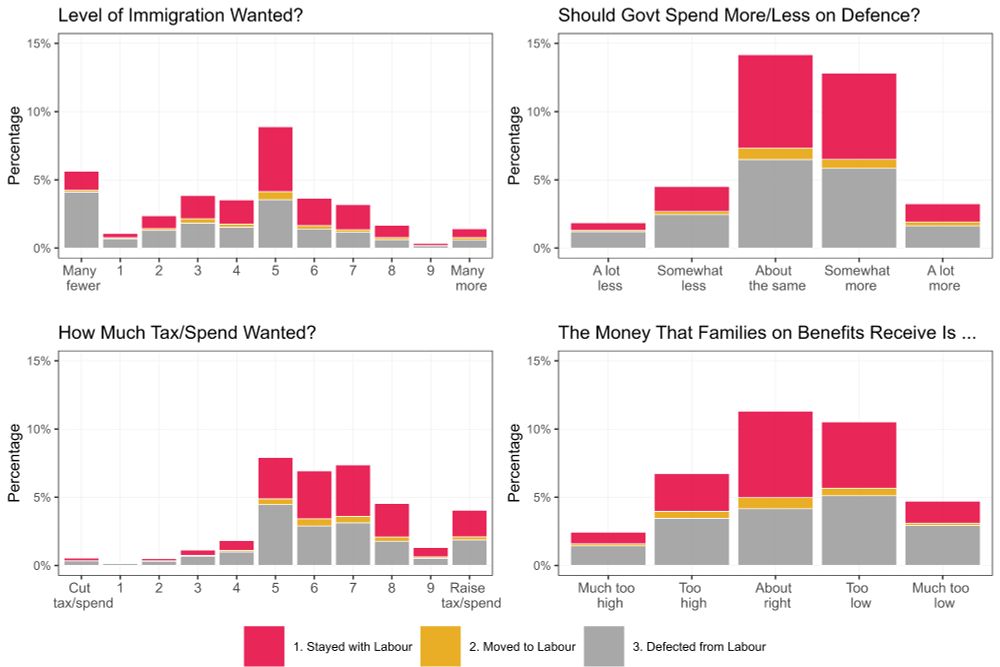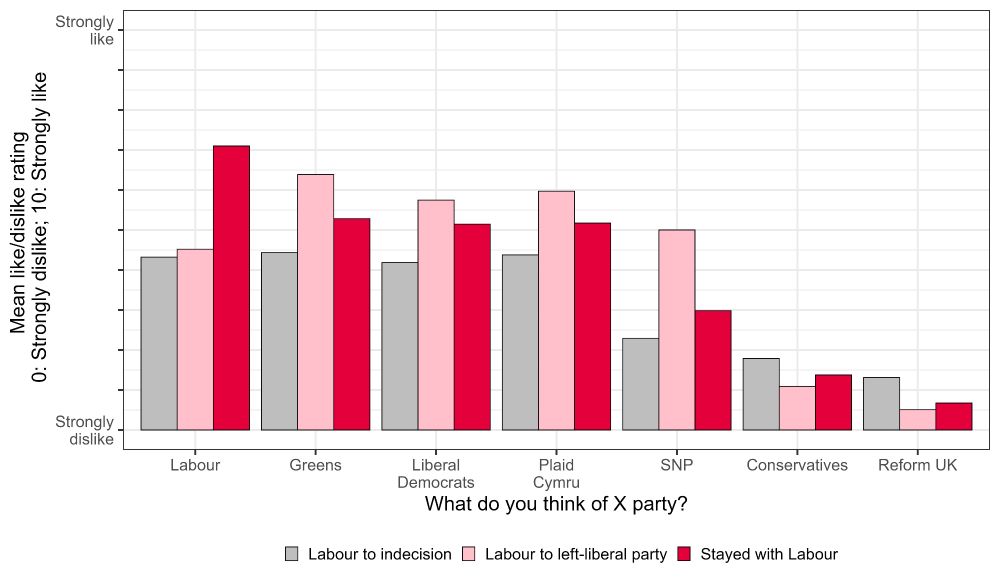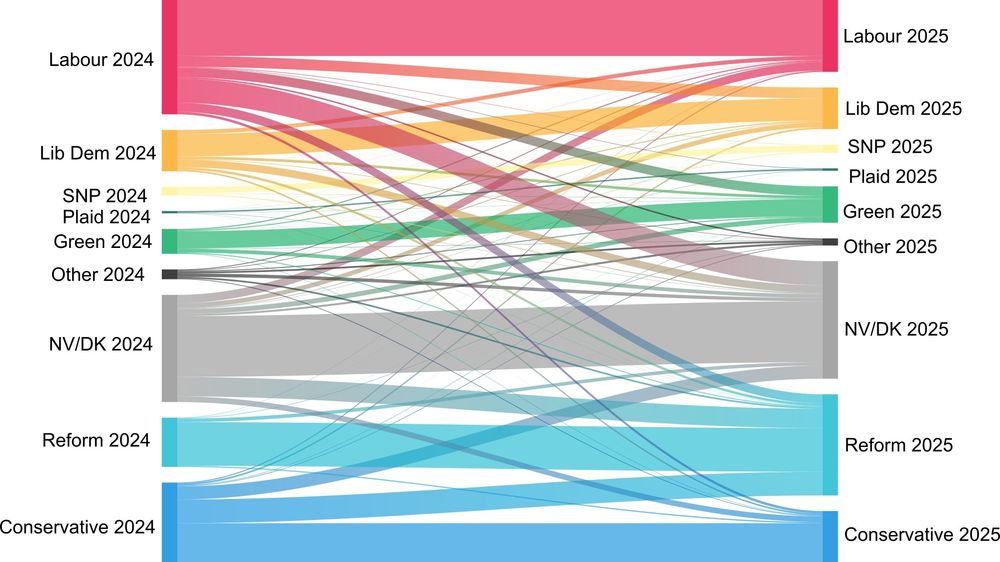You can read Marta and Jane's paper here: onlinelibrary.wiley.com/doi/10.1111/...
You can read the working paper on the Islands of Strangers speech here: osf.io/preprints/so...
You can read Marta and Jane's paper here: onlinelibrary.wiley.com/doi/10.1111/...
You can read the working paper on the Islands of Strangers speech here: osf.io/preprints/so...
Labour’s vote has splintered between indecision and other left-liberal parties, with its rightward shift yielding little gain.
Labour's main competition for their 2024 voters are other left-liberal parties. They have time to win them back, but a tough path to do it
Labour’s vote has splintered between indecision and other left-liberal parties, with its rightward shift yielding little gain.
Labour's main competition for their 2024 voters are other left-liberal parties. They have time to win them back, but a tough path to do it
However, the problem for the Labour Party is that their 2024 voters are not convinced by their performance in office.

However, the problem for the Labour Party is that their 2024 voters are not convinced by their performance in office.
This strategy hasn't worked on its own terms because they have lost the (very few) right-wing voters that they had, while also losing (much) larger numbers of left-wing voters.

This strategy hasn't worked on its own terms because they have lost the (very few) right-wing voters that they had, while also losing (much) larger numbers of left-wing voters.
These Lab -> undecided voters like the Liberal Democrats, Greens, and Plaid Cymru a lot more than they like Reform UK and the Conservatives.
So, these party blocs matter.

These Lab -> undecided voters like the Liberal Democrats, Greens, and Plaid Cymru a lot more than they like Reform UK and the Conservatives.
So, these party blocs matter.
Reform's growth in support has mostly come from the Conservatives and non-voting (much less from Labour).
These reflect patterns of party-bloc voting that we saw in the 2024 UK GE: tinyurl.com/y5pv7thw

Reform's growth in support has mostly come from the Conservatives and non-voting (much less from Labour).
These reflect patterns of party-bloc voting that we saw in the 2024 UK GE: tinyurl.com/y5pv7thw
Over 1 in 5 of their 2024 voters are now undecided. Labour could win these back, but there is a risk.
The Conservatives lost a similar amount to indecision after the last 3 elections, and they won most back in 2017 and 2019 (but not 2024).

Over 1 in 5 of their 2024 voters are now undecided. Labour could win these back, but there is a risk.
The Conservatives lost a similar amount to indecision after the last 3 elections, and they won most back in 2017 and 2019 (but not 2024).
Support for Labour has fallen more sharply after this election than it has for any other winning party covered by the BESIP (though the timings between waves are not identical).

Support for Labour has fallen more sharply after this election than it has for any other winning party covered by the BESIP (though the timings between waves are not identical).
Please watch these short films:
Four tips for interpreting these local elections:
www.youtube.com/watch?v=1DSb...
Reform Revolution? Four hurdles Reform will still need to overcome:
www.youtube.com/watch?v=S6ZG...
Please watch these short films:
Four tips for interpreting these local elections:
www.youtube.com/watch?v=1DSb...
Reform Revolution? Four hurdles Reform will still need to overcome:
www.youtube.com/watch?v=S6ZG...
Data and analysis from @britishelectionstudy.com @nuffieldcollege.bsky.social @nprcoxford.bsky.social @jrf-uk.bsky.social
Data and analysis from @britishelectionstudy.com @nuffieldcollege.bsky.social @nprcoxford.bsky.social @jrf-uk.bsky.social

